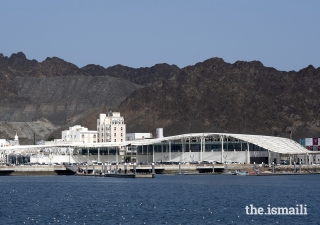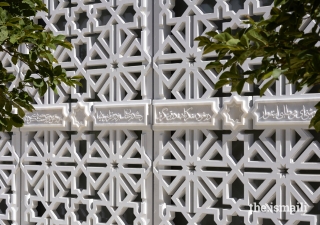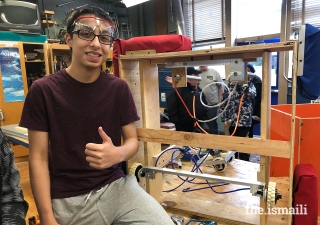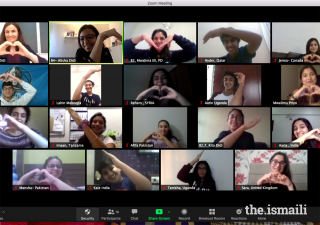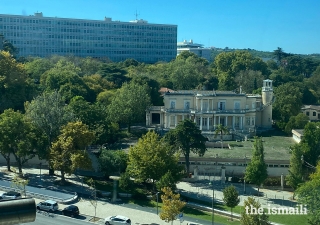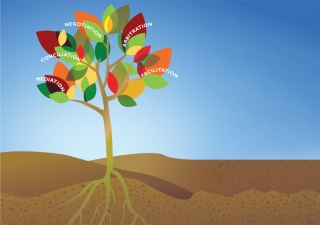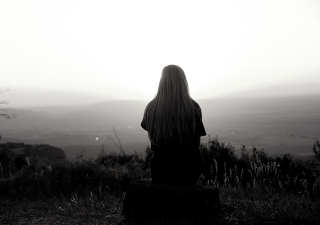News
Latest news and updates in Bangladesh
Amidst the magnificence of the Al-Hajar mountains, the lush fruit-scented plantations of Misfat Al Abriyeen, and the abandoned settlements of Harat al-Bilad, 15 young adults from the United Arab Emirates and the surrounding region participated in an international excursion to Muscat, Oman last year.
To mark the occasion of Milad-un-Nabi this week, The Ismaili is pleased to present Zahe Muqaddar performed by Karim Javed Alwani. Originally sung by Qari Waheed Zafar Qasmi, Zahe Muqaddar is a Na’at written in praise of Prophet Muhammad (may peace be upon him and his family). This video was recorded in the Garden of Light at the Aga Khan Centre in London. The marble screens in the garden are inscribed with poetry by celebrated Persian poets and extracts from the Qur’an.
Everything is made of something. Materials science is the study of what objects are made of – from metals to ceramics and polymers – and why certain materials function the way they do. It is the science that explains why your phone charger is made of the insulator polycarbonate or why a car contains the fireproof material fiberglass in its bumpers, doors, roof, and wheels. Though materials science and engineering (MSE) is not often studied in schools, it is the foundation of all objects in our world.
Our history tells us that many scientists thrived in Muslim civilisations – their curiosity to understand the world driving some of the key developments that took place in their time. A new series on The Ismaili TV shines a spotlight on members of the Jamat working on the forefront of scientific and technological advancement, continuing a long tradition of innovation.
CONNECT, a virtual camp that was brought directly to the homes of 1,075 participants during a 10-day period this July, was an effort to bring the global youth together through creativity and exploration. Due to its success, registration is now open for a second session to be held this December.
Talking Hands is an initiative by the Aga Khan Education Board and Aga Khan Social Welfare Board in the UK that introduces viewers to British Sign Language (BSL). The eight-episode series will air weekly on The Ismaili TV, with different topics covered in each lesson. Viewers will build up their sign vocabulary and be able to have basic everyday conversations in BSL.
The Ismaili is pleased to present Ya Ali Madad, performed by the Dhun Kids. This light-hearted song features young members of the Jamat greeting each other across the world, and illustrates our shared sense of community, regardless of where we come from.
The vital role of women throughout history has ensured that communities and nations have been able to progress, safeguarding the stability and long-term development of society as a whole. Rural women play a key role in food production worldwide and form a large proportion of the global agricultural workforce.
The Ismaili Imamat has acquired the Palacete Leitão located on Rua Marquês da Fronteira in Lisbon. The site is adjacent to the existing Palacete Henrique Mendonça, which on 11 July 2018, was designated by Mawlana Hazar Imam as the Diwan of the Ismaili Imamat.
Every year, the third Thursday in October is designated as Conflict Resolution Day, a global event intended to promote the concept of peaceful conflict resolution. Mediation Week is also celebrated during the month of October. This month gives us an opportunity to reflect on how we can each play a part in creating a more peaceful, generous, and hopeful world, especially during these challenging and stressful times. The theme for Mediation Week 2020 is “Access to Justice – The Role of Mediation.”
In February of this year, before the global pandemic emerged, an audience of 289 gathered at Westwinds Jamatkhana in Calgary, Alberta to learn about mental health and suicide prevention in youth through a dramatic performance entitled Screaming in Silence. National and local institutional leadership and family units consisting of multiple generations were in attendance.
During the pandemic, mental health has come to the forefront of many discussions, not only because of the effects of the virus on the body, but because of additional factors such as changes in daily life, job stress, stay at home orders, and reductions in social interactions within and outside the Jamat. A silver lining of the virus is the growing awareness and more frequent conversations around the topic of mental health.

